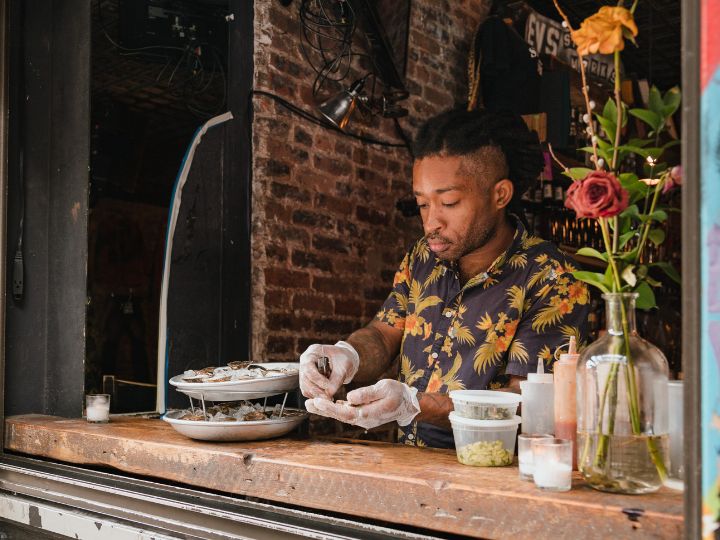
New research conducted by the University of Houston Conrad N. Hilton College of Global Hospitality Leadership suggests the Black Lives Matter movement had a significant, positive impact on the fundraising efforts of Black restaurateurs.
In a study published in the International Journal of Hospitality Management, the researchers found in the decade before Black Lives Matter rose to prominence, Black restaurateurs were 76% less likely to be successful in the use of crowdfunding sources, such as Kickstarter, than non-Black restaurateurs. From 2010 – 2015, funding was 72% lower for Black-owned businesses and from 2016-2020 it was 79% lower.
But that all changed when the Black Lives Matter movement, and Kickstarter’s endorsement of it in 2020, increased public support and facilitated a sharp increase in funding success for Black-owned restaurants.
“After the BLM movement and the appearance of the Black Lives Matter hashtag on Kickstarter, African-American entrepreneurs’ fundraising projects were nearly four-times more successful than before,” said Yoon Koh, associate professor at Hilton College and the study’s lead author. “We expected the BLM movement and the hashtag on Kickstarter would influence African-American founders’ fundraising success, but we didn’t expect the degree to be nearly four-times higher.”
Black entrepreneurs, historically, have faced more challenges securing funds from conventional financial institutions than any other racial group. According to the Federal Reserve, loan applications from Black-owned startups are twice as likely as non-Black startups to be rejected.
“We wanted to find out if the issues related to conventional financing also existed in crowdfunding,” Koh said. “With the known challenges Black restaurateurs face, it was imperative for us to examine if crowdfunding could be a solution.”
Koh and her study co-authors, Agnes DeFranco, professor and Conrad N. Hilton Distinguished Chair, and Xiaodan Mao-Clark, a Hilton College Ph.D. candidate, studied nearly 2,700 restaurant projects on Kickstarter from 2010 – 2020. They found Black owners were involved in 14% of those projects, but only 5% of the projects that were funded.
“Despite strong millennial support of technology and racial diversity, they may have had some unconscious bias against Black-owned businesses and hesitated to support them via crowdfunding,” Koh said. “But that changed when Kickstarter endorsed Black Lives Matter.”
According to Koh, the BLM movement increased crowdfunding supporters’ awareness of their unconscious bias toward Black-owned businesses and helped them evaluate projects more fairly. And, Koh said, the findings indicate the crowdfunding platforms’ active participation in social discourse and collective action contribute to reshaping sociopolitical symmetry.
“It remains to be seen how long the positive impact the BLM movement brought will sustain and continue to resonate with the public, especially without the hashtag on Kickstarter,” Koh said. “But I will continue my research to help minority entrepreneurs succeed in their fundraising.”